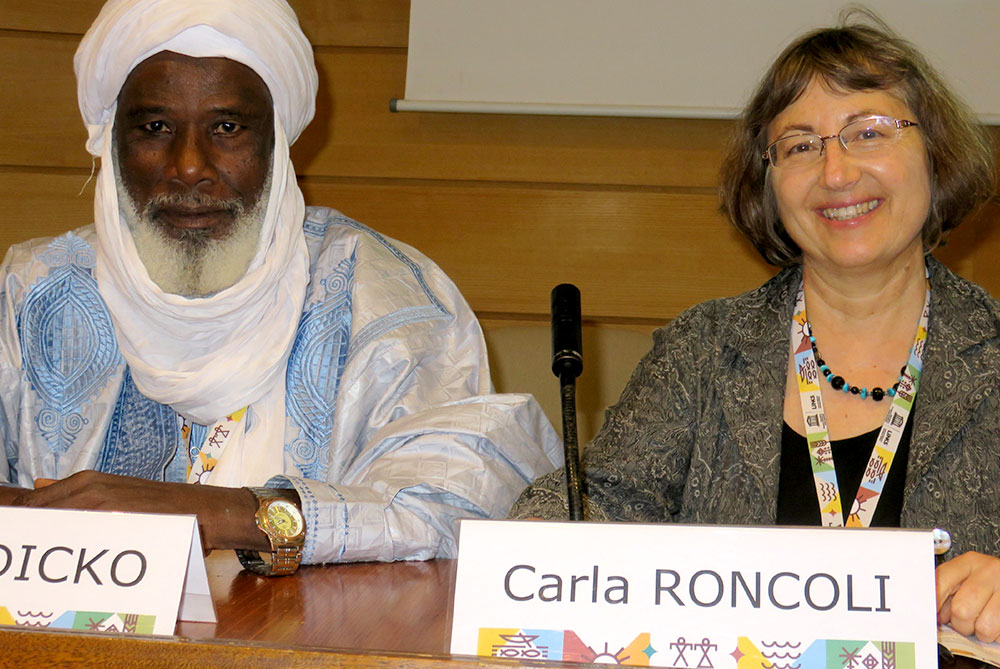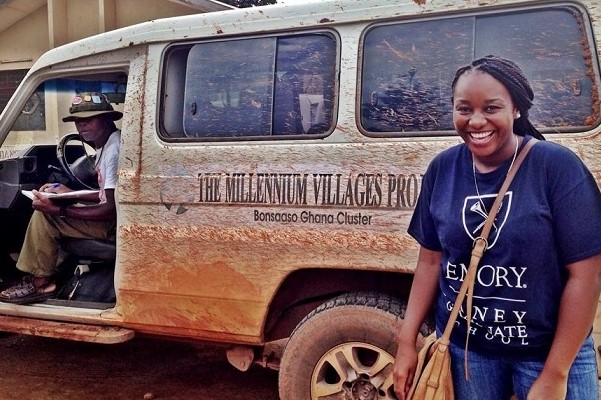Dr. Roncoli Contributes to Intergovernmental Panel on Climate Change
For the second time, MDP Director Dr. Carla Roncoli is a contributing author to the IPCC Assessment Report. In this 6th edition (AR6), Dr. Roncoli uses her expertise on climate risk management in agriculture to contribute to the chapter on Africa on the subject of adaptation of food production systems. For the past 25 years, her research has looked at how smallholder farmers in Africa can adapt to climate variability and change through a variety of different risk mitigation strategies. More specifically, she has worked on the role of climate forecasting in agricultural decision-making, focusing on the interaction of scientific expertise with local knowledge systems.
The Intergovernmental Panel on Climate Change (IPCC) consists of nearly one thousand prominent scientists from all over the world. Issued every seven years, their ARs are meant to provide a state-of-the-art update on the science on climate change, including its observed and future risks, sector- and region-specific vulnerabilities, and adaptation and mitigation options that may be promoted. Dr. Roncoli describes the IPCC AR reports as “very authoritative: they are considered the ultimate word that science has to say on different aspects of climate change. Therefore they are taken very seriously, not just by policy-makers but also by foreign aid agencies such as the World Bank, the UN, international NGOs, and so on.” While the report does not formulate specific policy recommendations, its findings are influential in shaping policy and program interventions in a range of sectors.
Dr. Roncoli brings the perspective of an environmental anthropologist to climate change research. She notes that the ARs have evolved over time to include structural and contextual drivers of vulnerability and the role of indigenous knowledge in adaptation planning. She says, “AR5 and AR6 started paying attention to questions of poverty and inequality, far more than previous reports. There is also more intentionality about recognizing the value of indigenous knowledge. AR5 started doing so but it was still very much framed in the language and perspective of science. The voices of indigenous people need to be given a lot more centrality, not just for the instrumental goal of complementing the science but as knowledge that is valued for its own sake. While there’s been an evolution in this respect, we are still far from the ideal.” The challenges are both scientific and political, explains Roncoli. Indigenous ways of knowing do not easily fit within the rigid parameters for what gets considered "evidence" and, as such, included into the IPCC AR. In addition, the IPCC is constituted by member states, which sometimes have a conflictual relationship with indigenous peoples and ethnic minorities.
The IPCC AR6 is scheduled to be released in October 2021. In March 2020 Dr. Roncoli is attending a WriteShop with the African food systems team in Cape Town, South Africa. We wish Dr. Roncoli best of luck as she engages in this important work!

Curriculum
The Emory MDP curriculum combines natural, social, health sciences and management.
FIELD PRACTICUM
The Field Practicum is a core component of the Emory MDP curriculum.

